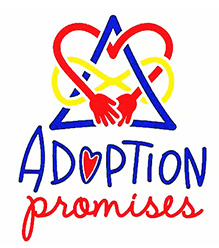Adoption: The legal transfer of all parental rights and obligations from one person or couple to another person or couple.
Adoptive Parents: An individual or couple who have chosen to adopt and have received court approval.
Agency Adoption: Adoptive parents can work with either public agencies or private agencies. There are international, domestic, infant and special needs adoption programs.
Agency Assisted Adoption: An agency adoption where the agency will help the prospective adoptive parents with locating a birthmother, possibly answering the phone and providing a variety of services to the birthmother and the adoptive parents.
Home study: A social investigation where a social worker interviews prospective adoptive parents concerning their background and their ability to raise a child. Often this is done in a series of interviews, with at least one interview in the home. It can also include information to help an individual or couple to prepare for adoption. There is a time period of 6 months, before a home study needs to be updated.
Independent Adoption: An adoption that is not arranged by an agency is an independent adoption. The birthmother contacts the prospective adoptive parents. An adoption attorney will speak to the birthparent and help the birthparent find their own lawyer, and assist with the legal aspects of the adoption. International adoptions can also be independent adoptions.
International Adoption: The adopted child comes from another country. The countries with the most international adoptions are China, Russia, Romania, Guatemala, Vietnam, Colombia, Philippines, and Paraguay. Travel by the adoptive parents may or may not be required. International adoption can be done with an agency or independently. Approval must be obtained from both domestic and foreign governments.
Interstate Compact: The legal agreement between the states concerning a child living in one state and going to another state to be adopted. Adoption paperwork such as a home study must be reviewed by the state the child is residing in before the child can leave the state for its new home. A social worker can file the paperwork.
Open Adoption: An adoption that has identifying information shared. This can be at the time the adoption takes place and/or while the child grows up. It can be anywhere from minimal information like a photo and letter being exchanged at the time of birth, to regular contact between birthparents and adoptive parents and child. Open adoptions occur with Independent and Agency adoptions.
Special Needs: Refers to many categories of children, including those with physical, emotional, and medical disabilities, children over the ages of five, or those in foster care. Special Needs children can also refer to siblings that are trying to be placed together.
Termination of parental rights: This can be done as a voluntary process when birth parents consent to an adoption. Termination of parental rights can also be done against the will of the parents, if a state determines that it is in the best interest of the child. A termination of parental rights is a legal process and must be done before an adoption can be finalized.


 Follow
Follow



